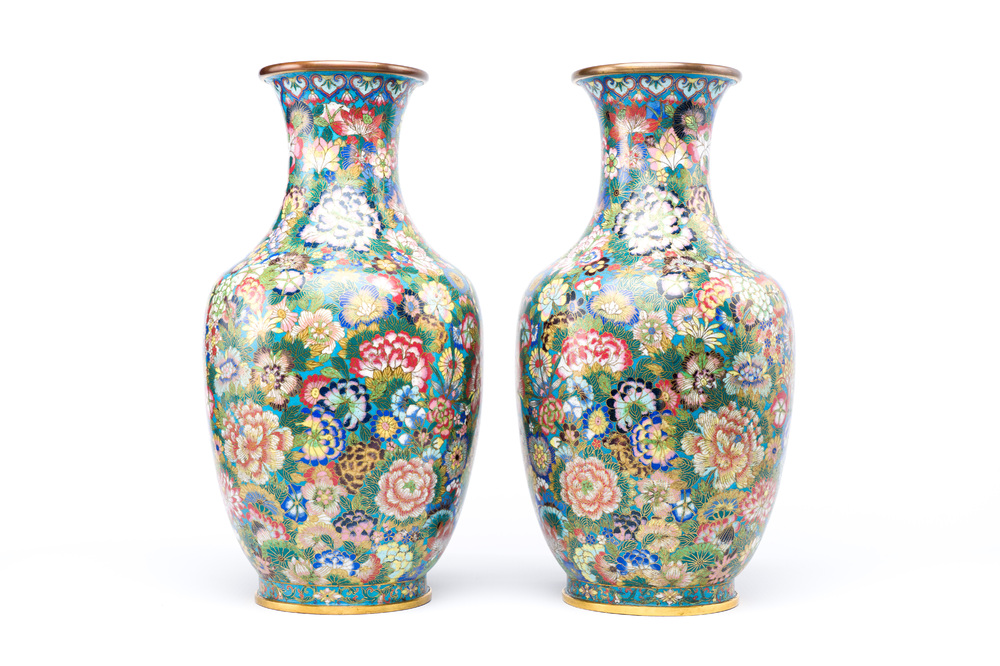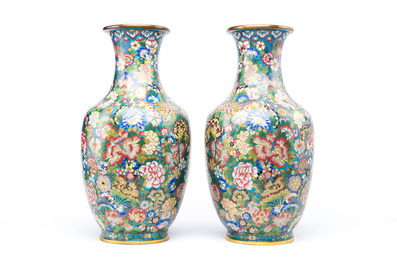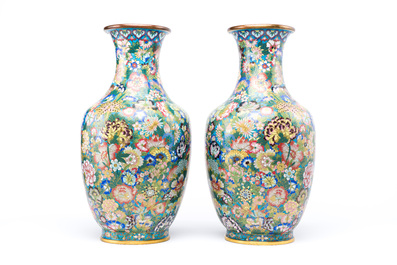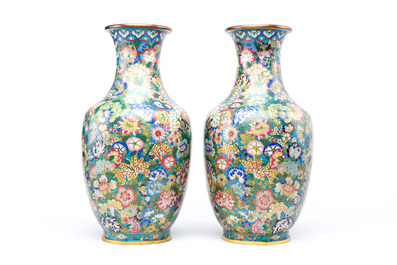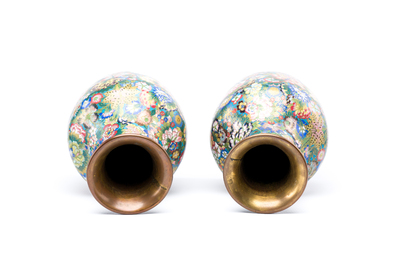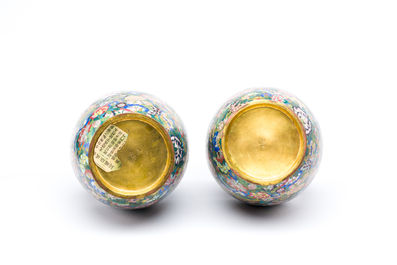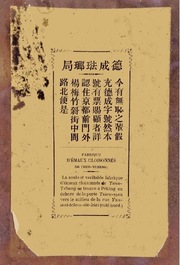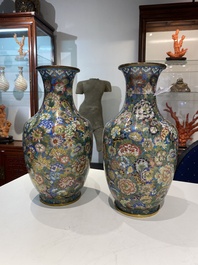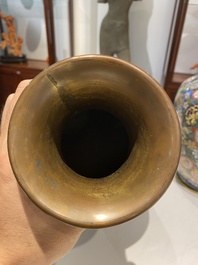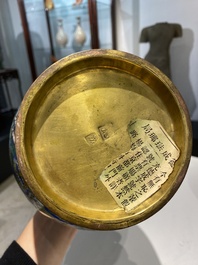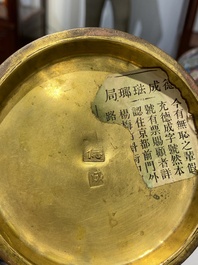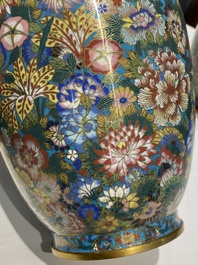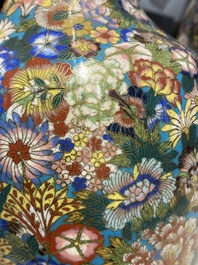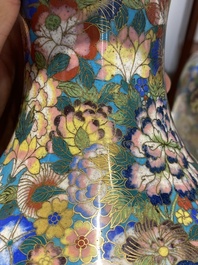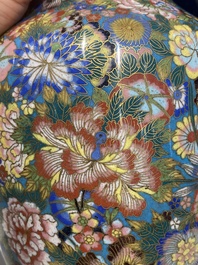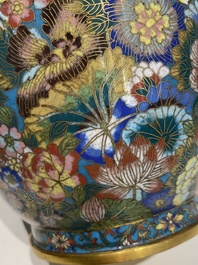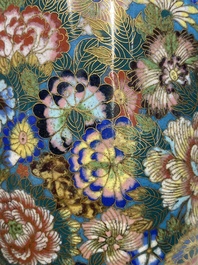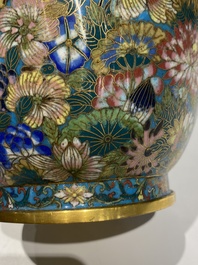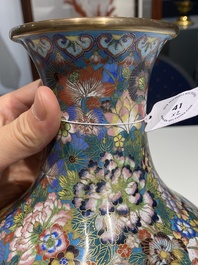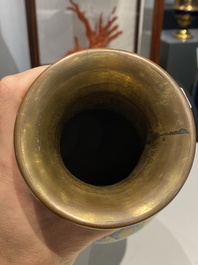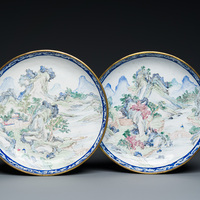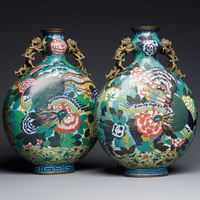Nous devons vérifier que votre inscription n'est pas une entrée automatique. Veuillez s'il vous plaît compléter le test suivant:
Paire de vases à décor 'millefleurs' en émaux cloisonnés, Chine, marque de l'atelier De Cheng, Pékin, 2ème moitié du 19ème
H.: 31 cm
Condition: (UV-checked)
- Both in quasi excellent condition, with some normal wear and a few minor baking spots.
品相:(已用紫外线光检查)
- 一对近乎全品,表面轻微磨损,几处典型小的缩釉。
This superb mirror-pair of vases in the 'hundred flowers' style is a tour de force of the De Cheng (德成) cloisonné workshop. It would have been extremely time-consuming to produce, requiring a workshop with a set of exceptionally skilled draftsmen. Established between 1850 and 1860, the De Cheng workshop became renowned throughout Beijing over the course of the century for the superior quality of its cloisonné enamel wares, which were eagerly collected not only by members of the imperial court but also by the area’s foreign residents. Even with the resources available to the most sought-after cloisonné workshop of its time, it is not surprising that very few pieces decorated with this complex design were made, and only a handful survived.
Among the represented flower species may be distinguished peonies of several kinds, lotuses, chrysanthemums, magnolia, roses, hibiscus, orchids, iris, lilies, asters, hydrangea, wisteria, pomegranates, begonias, narcissuses, convolvuli, syringas, pyrus japonica (hai-t'ang) etc.
Both are marked with the stamp of the workshop, one of the vases still has part of the original workshop label.
Ref.:
- Cloisonné: Chinese Enamels from the Yuan, Ming and Qing Dynasties, Béatrice Quette (ed.), Bard Graduate Center, New York, 2011, p. 28 for a reproduction of the label (see added image). Both Chinese and French texts inform prospective buyers of possible imitations (although put differently) and pinpoint the address of the workshop. In Chinese the text reads as follows: “Now some shameless people counterfeit the trademark of 德成; Nevertheless, our customers have our certificate, specifying exactly where we are located, it is at ‘Jingdu Jianmen wai Yangmeizhu xiejie zhongjian lubei’ [in Beijing outside Tsien-men gate toward the middle of the north side of Yangmeizhu xiejie street).
In French: “The one and only true cloisonné workshop of Teuo-Tcheng is located in Beijing outside the Tsien-men gate, around the middle of Yan-mei-tchou-sie-kiai street (north side)”.
As Quette suggests, these bilingual labels indicate a deep concern about quality and forgeries and it is possible these labels were made on the specific occasion of an international exhibition in Paris (1878 or 1889).
We would like to thank Mr Nicolas Belmans, expert on 19th century Chinese cloisonné, for providing information in the redaction of the catalogue note. Mr Belmans is currently preparing a first catalogue of the De Cheng workshop.
